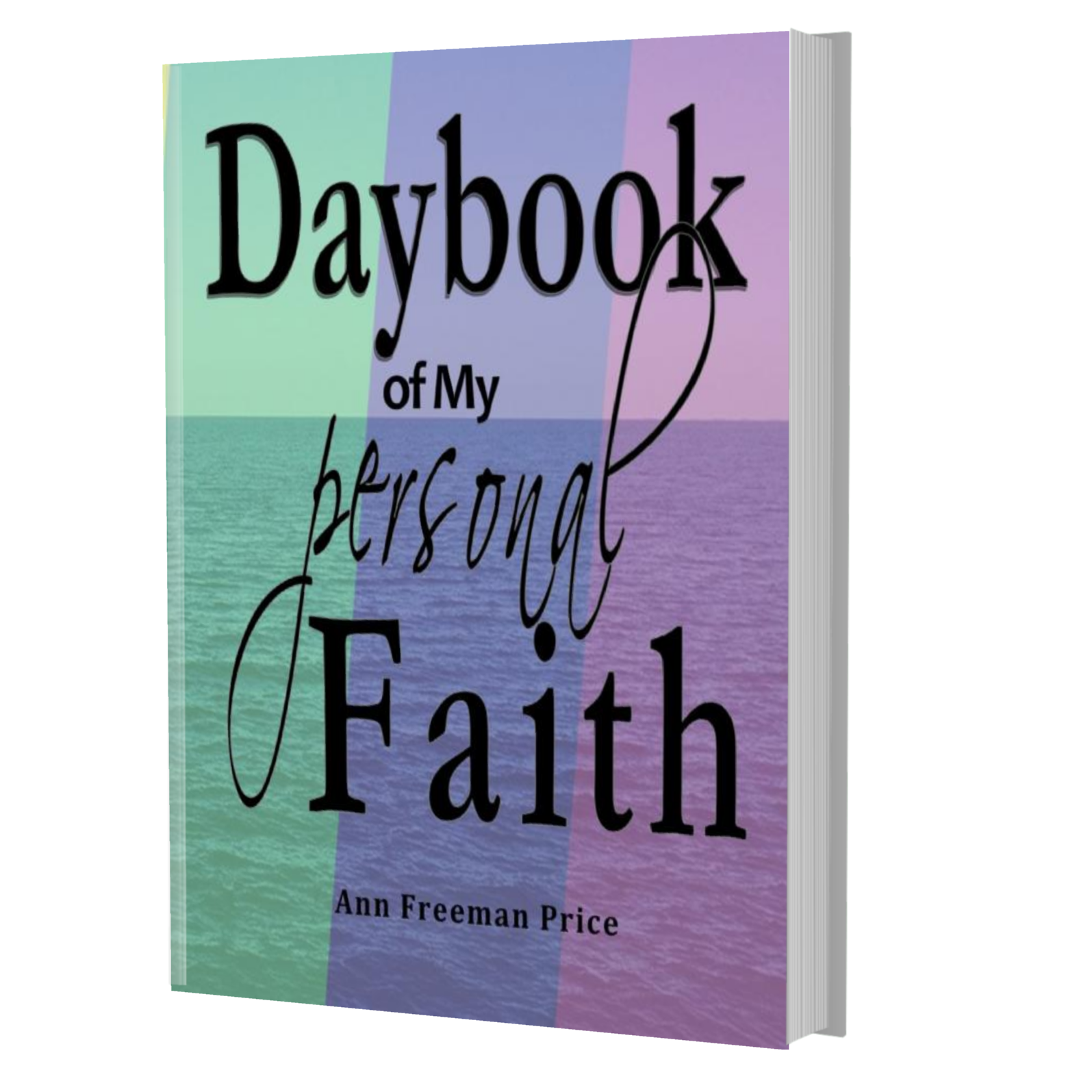Poet, Author, Composer....
Enough? That’s the Question
223. Enough? That’s the Question
I have a song that I wrote after my Mother’s death called I Didn’t Know. It’s on my CD and the words to the song start out:
—
I didn’t know it would be so very hard to let you go,
I didn’t know, I didn’t know.
I wonder did I say that I love you so,
I wonder did I say enough I love you so?
© Copyright 1984 Ann Freeman Price
—
The song goes on but it occurs to me that the important word in that last line is “enough.” Now that I am 79 and living my 80th year, it is the time in my life where I am losing people—friends have died, are dying, are going to be dying. “Enough” is the crucial word because in instance after instance I find myself thinking “Oh—I wish I had talked to him about this,” or “Oh—I wish we had just picked up and gone for a drive together.”
It’s not so much guilt—as it is lost opportunities. It’s not so much about actually saying “I love you,” (although that too), but it’s about coming to that place where it’s too late to do those things or say those things, and suddenly I feel like I didn’t do or say “enough.”
There are no solutions I think. It’s a matter of staying current with as many people as I can, of living as rich and full a life as I can just packed with people, and it’s a matter of knowing that when someone dies I’m going to say, “Oh, I wish I had……….”
Who Can You Change?
222. Who Can You Change?
Good question. Do you have the answer?
You know the Serenity Prayer that is used a lot in Alcoholics Anonymous groups? It goes like this: God, grant me the serenity to accept the things I cannot change, the courage to change the things I can, and the wisdom to know the difference. That prayer was originally written by 20th century theologian Reinhold Niebuhr. It’s a good prayer.
But a couple of years ago I heard another version that I thought was even better and effectively answers the question above. The other version is: God, grant me the serenity to accept the people I cannot change, the courage to change the person I can, and the wisdom to know that that person is me.
And to that I say Amen.
Do You Hear Me?
221. Do You Hear Me?
I have been a person for a very long time now with a hearing deficit. When I go yearly to be tested the audiologist has been saying for some time that I have a profound loss. So I wear two hearing aids and do my very best.
The other day I was thinking about an incident when I was walking with a friend in New York City. His name was Thom Hunt and as we walked we talked. He said something, I made a vague response. He stopped walking. So did I. And he said “You didn’t hear what I said, did you?” I admitted that I hadn’t and that I had just covered it up and pretended that I did hear. He said, “Listen! I want you to say ‘Repeat that Thom because I didn’t hear it and I want to hear every word you say!”
I’ve remembered that for a long time. Because when I try to bluff it through, I’m really saying I’m not that interested in what you’re saying. So that little incident convinced me that I just have to keep asking folks to repeat.
Now most of the time it doesn’t mean that I need you to increase your volume. I also don’t need you to come up close and talk loudly in my ear. I usually just need you to face me so I can see your lips also, and that will do it. Thanks, Thom.
Math or Mystery
220. Math or Mystery
A while ago I came upon this math problem and offer it here to you to solve or to revel in the mystery of the solution.
A farmer died and to his three sons he left 17 cows. His will stated that the oldest son should get half of the cows; his middle son should get a third of all the cows; and his youngest son should get one ninth of all the cows. O.K.—now you do the math and see what you come up with.
Hard to do isn’t it? Well the sons had a hard time too but kept trying to figure it out with not much luck. A neighbor came by and they gave him the problem. He listened and then said, “I think I’ve got a solution. I’ll be right back.”
He left and a little while later he came back with a cow. He gave it to them and said, “Now you can obey the will and the total number of cows is 18. They did the figuring and the neighbor was right: it was easier. The oldest son got half of the 18 cows, so he got nine cows. The middle son got one third of the 18 cows and that meant that he got six cows. The youngest son got one ninth of the 18 cows and he got two cows. Nine cows, and six cows, and two cows add up to 17, so they were able to obey the will, plus give the one cow back to the neighbor.
Isn’t that strange?
If You’re Looking for a Challenge
219. If You’re Looking for a Challenge
If you’re looking for a challenge, or a motto, or a direction for your life; if you’re looking for a resolution for the new year, or a goal to try for every day—well here are some words by John Wesley.
—
Do all the good you can,
By all the means you can,
In all the ways you can,
In all the places you can,
At all the times you can,
To all the people you can,
As long as ever you can.
—
John Wesley
—
Now read it over slowly again and think about how you would fit that into your day.
A Mandala A Day
218. A Mandala a Day
I’ve been coloring a mandala a day for over a year now—first thing in the morning. I have a three-part ritual that starts with my use of the lap labyrinth. Then I color in a mandala, and then write a few words of reflection.
I have a clipboard and fix the outline of the mandala on nine or ten pieces of paper. I have a container of colorful markers, so everything is set and ready to go.
In the year I’ve just done it—read no books—and have found it a delightful way to start the day. At a certain point I started giving the mandala a title and I did that for a while. Now, sometimes yes, sometimes no.
I think the circle provides a structure within which I can work. I’m not starting out with a totally blank page. And many times something evolves. It seems to get my day in gear and starts it off with form and color and a smile.
Now I’ve bought a book about mandalas. We’ll see if that changes the process at all and I’ll write “A Mandala a Day—#2.”
An Image of Dying
217. An Image of Dying
I just came upon this poem by Henry van Dyke that I had not seen before. I like the image.
—
Gone from My Sight
—
I am standing upon the seashore.
A ship at my side spreads her white
sails to the morning breeze and starts
for the blue ocean.
—
She is an object of beauty and strength.
I stand and watch her until at length
she hangs like a speck of white cloud
just where the sea and sky come
to mingle with each other.
—
Then someone at my side says,
“There, she is gone!”
—
“Gone where?”
—
Gone from my sight. That is all.
She is just as large in mast and hull
and spar as she was when she left my side
and she is just as able to bear her
load of living freight to her destined port.
—
Her diminished size is in me, not in her.
—
And just at the moment when someone
at my side says: “There, she is gone!”
there are other eyes watching her coming,
and other voices ready to take up the glad shout;
—
“Here she comes!”
And that is dying.
—
by Henry van Dyke (1852-1933)
More Journal Conclusions
216. More Journal Conclusions
As I have continued to go through journals, shredding most of them, I’ve noticed three things. I notice how hard I was working to figure myself out and make changes that would help me be happier and help me be more of a model for the children. And so I read and went to therapy and worked at making the changes that seemed best.
Another thing I notice in the journals is that (just like therapy) I wrote primarily about the negatives—what wasn’t working, what were the upsets in my day, where did I need to work even harder to change.
And the last thing I notice is that I’m still working on some of them. Some of the repeating subjects were diet, procrastination, finding balance. Maybe it’s true that there are some things that you work on all your life.
My Own Cheering Section
215. My Own Cheering Section
I was driving by myself to a home in New Jersey late at night. I had never been there before and knew it would be hard to read directions in the dark car. So I put the directions on a tape recorder which I knew I could operate in the dark. In addition I put words of encouragement to myself on the tape.
As I drove along, I pushed the “Play” button whenever I needed a new part of the directions. Sometimes I backed it up and listened to it again. I had the tape recorder on the passenger seat and could operate the controls simply by touch.
It was reassuring to have another voice in the car, to know that the directions were right there, and above all to hear myself saying on the tape, “Hey, Ann, you’re really doing well.” “Good job, Ann, you’re almost there.” and at the end: “Yahoo! Ann! You made it.”
So now I think if I have a day where things haven’t gone particularly well, or it seems like I’m knocking myself out and no one is noticing, I could do a similar thing. I can be my own cheering section: Way to go Ann.
Pick Up Your Arm
214. Pick Up Your Arm
Years ago when I was into cooperative games and what I would call insight exercises, I came upon one that I think about every so often. You put your arm down in front of you on a table. Now
try to lift it up BUT don’t lift it up. And then try again and DON’T lift it up. Once more try to lift it up AND don’t lift it up. Now finally lift it up.
The point of all that is that most of the time it takes a lot more energy to not do something than it does to just do it.


